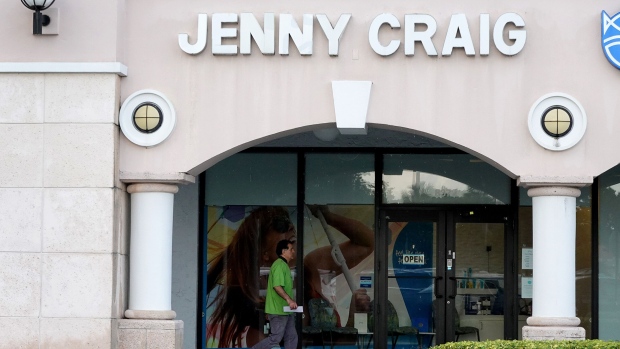Canadian Pacific hit with violation notice after derailment in Maine
, The Canadian Press
State authorities in Maine have hit Canadian Pacific Kansas City Ltd. with a violation notice over fallout from its cleanup efforts after a freight train went off the tracks last month.
Officials sent a notice of violation to the railway after heavy construction equipment deployed to access the crash site caused a "significant amount of sediment" to enter local waters in violation of a pollution control law, according to Maine's Department of Environmental Protection.
"Culverts were crushed and dirt has been shifted in and around a number of streams as a result of heavy machinery using the forest management roads," the department said in a release Friday.
Melanie Loyzim, the department's commissioner, sent a second letter instructing CPKC to implement erosion control measures "immediately."
On April 15 a Canadian Pacific Kansas City train hit a track washout in a wooded area near Moosehead Lake in northwestern Maine, some 220 kilometres southeast of Quebec City, setting several cars ablaze.
CPKC said last month that locomotives and four derailed lumber cars went up in flames, with crews using booms — absorbent, tubelike barriers — to contain spilled diesel fuel.
Cars carrying drums of ethanol and another hazardous material also skidded off the rails but did not catch fire, CPKC said. State officials said there is no threat to public safety.
Three crew members were taken to a local hospital for non-life-threatening injuries and released the same day, the railway said.
As of Friday, CPKC had about 60 emergency spill responders and environmental professionals on site to clean it up and monitor soil and surface water quality, the state officials said. Specialized railway equipment arrived Thursday, set to be lined with plastic and loaded with oil-saturated materials from the site.
"The remote, forested nature of the area combined with the spring thaw has made cleanup efforts challenging, including for the ingress and egress of people and equipment," Canadian Pacific spokesman Patrick Waldron said in an emailed statement Tuesday.
"CPKC is committed to the restoration of the derailment area and full cleanup of the affected environment. CPKC crews are on the ground working in full co-operation with the Maine Department of Environmental Protection, and other agencies, as we have since the derailment occurred."
The rail line is the same one where the fatal Lac-Mégantic disaster unfolded about 90 kilometres further west in 2013. Canadian Pacific did not own the track at the time.
The line — in CP Rail's hands until the mid-1990s, and later dubbed the Central Maine & Quebec Railway — was in dire need of an upgrade when the company repurchased it from private equity firm Fortress Investment Group in 2020.
"CP plans to invest as much as $90 million over the next three years to bring CMQ's rail infrastructure up to Federal Railroad Administration Class 3 standards," Canadian Pacific said nearly three years ago.
Greg Gormick, who heads On Track Consulting, said the accident could have been "much worse" given the route's rugged topography.
Last week, Canadian Pacific told Maine's environmental protection department its response team had recovered nearly 33,000 absorbent pads, 15,000-plus feet of absorbent boom and 12 cubic metres of fluid — oil, water and diesel — using vacuum trucks.
This report by The Canadian Press was first published May 2, 2023.
.jpg)


